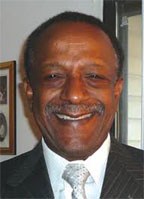The Gantt Report
By Lucius Gantt
Almost every city I’ve worked in has been a college town. College students would always call me and inquire about doing internships.
I would tell the aspiring journalists, “OK, what can you do?”, and most of the upper-level students would tell me, “I’m in school. I don’t know how to do anything professional.”
They didn’t want to volunteer and learn; they wanted to get paid internships. I told them to get a skill and holler back at me.
It appears that most journalism students want a “media sugar daddy”, or someone that will put them on the payroll for non-media related reasons.
I don’t criticize that approach. That’s what NABJ (National Association of Black Journalists) is for. It won’t work for media entrepreneurs, it won’t work for journalists that have experience, versatility, and skills and that they can market and sell on their own. It won’t work for journalists that will insist on telling the truth.
If you don’t know, the best Black writers, journalists and scribes all wrote their “best works” in times of turmoil, turbulence, trouble, and hard times.
When the Disciples penned the gospels, they might have been running for their lives trying to escape from the wrath of the wicked Pharoah. Frederick Douglass escaped from slavery to write his most memorable words. Ida Wells lamented about the way Blacks were treated after emancipation. Marcus, Martin, Malcolm, Baraka, Giovanni, Angelou, Baldwin, Biko, Nkruma, and all the great Black writers were inspired by struggle, so to speak.
In 1968, my neighborhood, “Fourth Ward”, was the site of Atlanta’s most violent and destructive examples of civil disobedience. Malatov Cocktails lit up the Boulevard and more than a few pale intruders were stoned and bricked way before Rodney King was beaten in Los Angeles.
Black Atlantans wanted media companies to hire more Blacks, and in June of 1968 I was hired by WSB-TV.
I was angry when I took the job, but I couldn’t show my rump because 15 months later I had a wife and a baby on the way.
Back in the day, there were no computers and smart phones; there were no major media Black mentors. There were no HBCUs that I knew about offering journalism study and degrees in the 60s.
Unlike the young people of today, Black media elders had to walk in the media company doors ready to deliver and perform.
I had to be a good writer.
Later, I would say that I was at the top of my profession. I worked at The Associated Press at Rockefeller Plaza in New York City. When I handled the “news wire”, every English writing newspaper in the world carried my AP stories. In 1973, I wrote three of the top 100 stories in the AP yearly news book.
Anyway, I would love to work with young men and women interested in media careers but college professors that got hired because of someone they knew don’t want anything to do with Black media pros that can truly teach young Blacks how to succeed in media better than they are currently being taught,
The white man knows more about the best Black media professionals than Black people do.
Take any topic you’ve ever read in The Gantt Report, including today’s topic, and ask the white media person if Lucius is lying.
I pray that God will send us more Black journalists that will write the truths we need to know.
Recognize the elders in our community in all professional areas.
You never miss your media waters until the well runs dry!
The stress, drama, and trouble in mind you’re going through hopefully will inspire you to write, paint or create!
